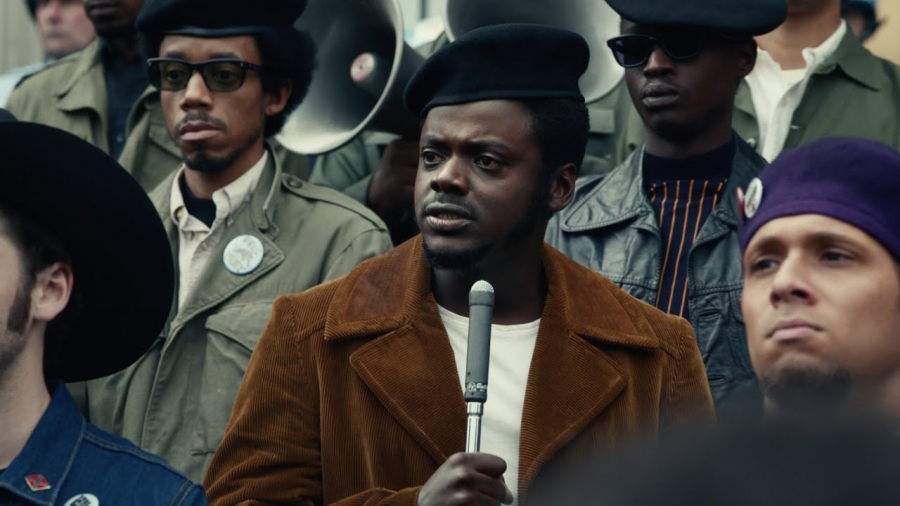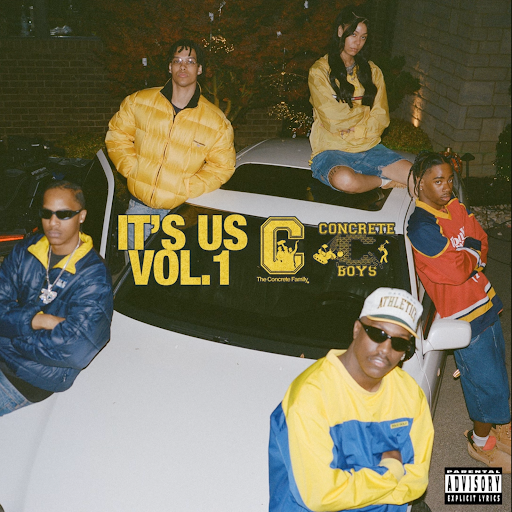In November 1968, a young man named Fred Hampton joined the Chicago chapter of the Black Panthers. His presence not only impacted his own community but incited a radical message that was heard throughout America.
“Judas and the Black Messiah” is a film that documents Hampton’s (who is played by Daniel Kaluuya) life as a leader of the Black Panthers and is more than deserving of the six awards it is nominated for at the 93rd Academy Awards. These nominations include Best Picture, Cinematography, Music (original song), Writing (original screenplay) and two nominations in the Supporting Actor category.
The critically-acclaimed film is directed by Shaka King and features Daniel Kaluuya and LaKeith Stanfield, who you may recognize from the Academy Award-winning horror film, “Get Out.” Whereas their previous on-screen presence did not see much interaction, the two play real-life figures who share a close and tragic relationship. Although Kaluuya already snagged an award at this year’s Golden Globes for his role in “Judas and the Black Messiah,” he and Stanfield are both Oscar nominees for Best Actor in a Supporting Role. It’s up to the Academy to decide who outdid whom (if that’s even possible).
There are several memorable scenes that should earn Kaluuya an Oscar for Best Actor in a Supporting Role, such as the famous speech Hampton addresses to the people of Chicago, in which he declares himself a revolutionary. Kaluuya beautifully portrays the outspoken radical, the percussion in the background giving life to his powerful words. His speech is seen echoing through a crowd of people of all races and political affiliations. Although Hampton spoke for many African Americans in their struggle for social equality, he is also known for emphasizing the need for the individual effort of every American in achieving racial justice. His message is a foundation upon which the current Black Lives Matter movement takes root, and this film is successful at reminding the viewer of that.
After ascending to the highest rank of his chapter, Hampton becomes a target of the FBI and is subsequently investigated by confidential informant William O’Neal (Stanfield). While Hampton’s historic contributions to the Black community are a defining part of the film, “Judas and the Black Messiah” is impressive for its ability to develop multiple components all within its two-hour runtime, such as O’Neal’s double-life.
As both Head Security officer for and a conspirator against the Illinois Panthers, O’Neal’s central role in this historical drama is complicated. After being charged with auto theft, the FBI offers him an alternative deal to doing jail time at the age of 17. His involvement with Hampton is layered as he must attempt to balance his obligations to the FBI and dedication to the party. Although O’Neal plays a major part in Hampton’s downfall, the film pays great attention to how difficult his actions weigh on his personal morals, especially concerning his identity as a Black man. O’Neal often debates abandoning his undercover duties to fully pledge his protection to Hampton and in turn, the future of Chicago. Similar to the religious figure Judas, Hampton’s wish to achieve justice for the Black community painfully reminds O’Neal of the fact that he is being weaponized against his own people. However, this does not always stop him from taking risks to appease the institution that tries to convince him otherwise.
In the end, viewers witness the impact of O’Neal’s decisions from choosing to work as a government confidant to an ultimatum that will define his humanity. While we may not know O’Neal’s true allegiance, even decades after Hampton’s assassination, the film portrays his character as guiltily-misguided yet fully conscious of his actions. Of the five categories “Judas and the Black Messiah” is nominated in, the pure emotion felt from watching O’Neal’s perspective makes the film worthy of taking home the award for Best Picture.
The depiction of Hampton and his efforts to galvanize Chicago is displayed spectacularly, bringing out the best of Kaluuya and Stanfield. Most importantly, there is much to be learned in the present day as Americans continue to fight for a world in which Hampton’s message can be fulfilled. “Judas and the Black Messiah” is now playing in theaters and is nominated for six awards at the 93rd Academy Awards, which will air on Sunday, April 25.

















